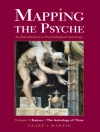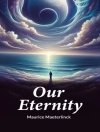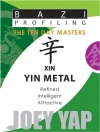Humanity stands at a critical crossroads. Social, political, religious, economic, and environmental systems are unraveling with bewildering rapidity all around us. In the face of such disintegration many of us feel helpless, despondent, angry, and anxious. Such feelings pose the greatest danger of all, as they lead to a loss of hope and a paralysis of will at a time in our collective evolution when inaction can be catastrophic. The Alchemy of Peace offers the gift of hope and a viable path out of the current chaos. It identifies a set of dysfunctional habits borne of tired old perspectives, false assumptions, limiting beliefs, and interpretations on the basis of which we make choices about how to behave. It posits that replacing these mindsets and habits with more constructive and empowering ones will open our eyes to new opportunities growing out of the ferment of our troubled times. A vision of the possibilities to create a better future will reinvigorate us with hope. Once we are equipped with this necessary energy, we will be able to harness the power of free choice to work tirelessly to achieve the world we want and deserve-a peaceful world in which we can focus on actualizing our individual and collective potential.
Table of Content
Introduction
1. Where We Are Now
Typical Reaction to Crises
Old Mindset 1: Humans Are Evil by Nature
Old Mindset 2: We Are Victims of Uncontrollable Events and Purposeless Suffering
Old Mindset 3: Humanity Has Irrevocably Failed
Our Current State: Hopelessness and Inaction
2. Reframing Our Mindset: The Peace Alchemy MethodThe Maturation Analysis: Humanity’s Transition from Adolescence to Maturity
The Phoenix Effect: Parallel Processes of Disintegration and Integration
The Role of Suffering
The Opportunity Advantage: Recognizing the Possibilities for Growth Inherent in Our Temporary Failures
3. Mindsets and HabitsWhat Is Mindset and Why It Matters
Replacing the Habits That Keep Us from Peace
4. The Power of Choice5. Shifting Our Collective Mindsets and Habits
Old Mindset 4: Globalization Is to Blame for Our Troubles
Old Habits of Isolationism, Xenophobia, Tribalism and Polarization
Old Habit of Nationalism
Taking Stock of Where We Are
Reframing Our Mindset: The Oneness Model
Choosing a New Habit: Building A System of Global Governance
Old Mindset 5: The Ends Justify the Means
Old Habit of Expediency
Accepting Where We Are
Reframing Our Mindset: The Consistency Rule
Choosing A New Habit: A Principled Approach to Addressing Global Challenges
Old Mindset 6: We Cannot Trust People in Positions of Authority
Old Habit of Electing Unfit Leaders
Accepting That Power Resides in the People
Reframing Our Mindset: The Leadership Shift
Choosing a New Habit: Electing Leaders on the Basis of Qualities, Motives, and Record of Service
Conclusion: Choosing New Mindsets and Habits Will Lead Us to a Lasting PeaceNotes
Bibliography
Index
About the author
Sovaida Ma’ani Ewing writes and lectures in the area of global governance, peace, and international security. Prior to her current work as founding director of the Center for Peace and Global Governance, Ms. Ma’ani Ewing served as an Attorney-Advisor in the Legal Advisor’s Office of the U.S. State Department. Born in East Africa and raised there and in the Middle East, she has also lived in the United Kingdom, where she earned an LLM in International Law and European Union Law at Cambridge University and qualified as a barrister-at-law of England and Wales. She subsequently moved to the United States and qualified as an attorney-at-law there, practiced law at respected law firms in Washington, D.C., including her own, and taught as an adjunct professor of law at George Washington University’s law school. Ms. Ma’ani Ewing has written several books including four in her area of work, listed below. She maintains a blog about principled solutions to current global issues at www.colllective-security.org.












